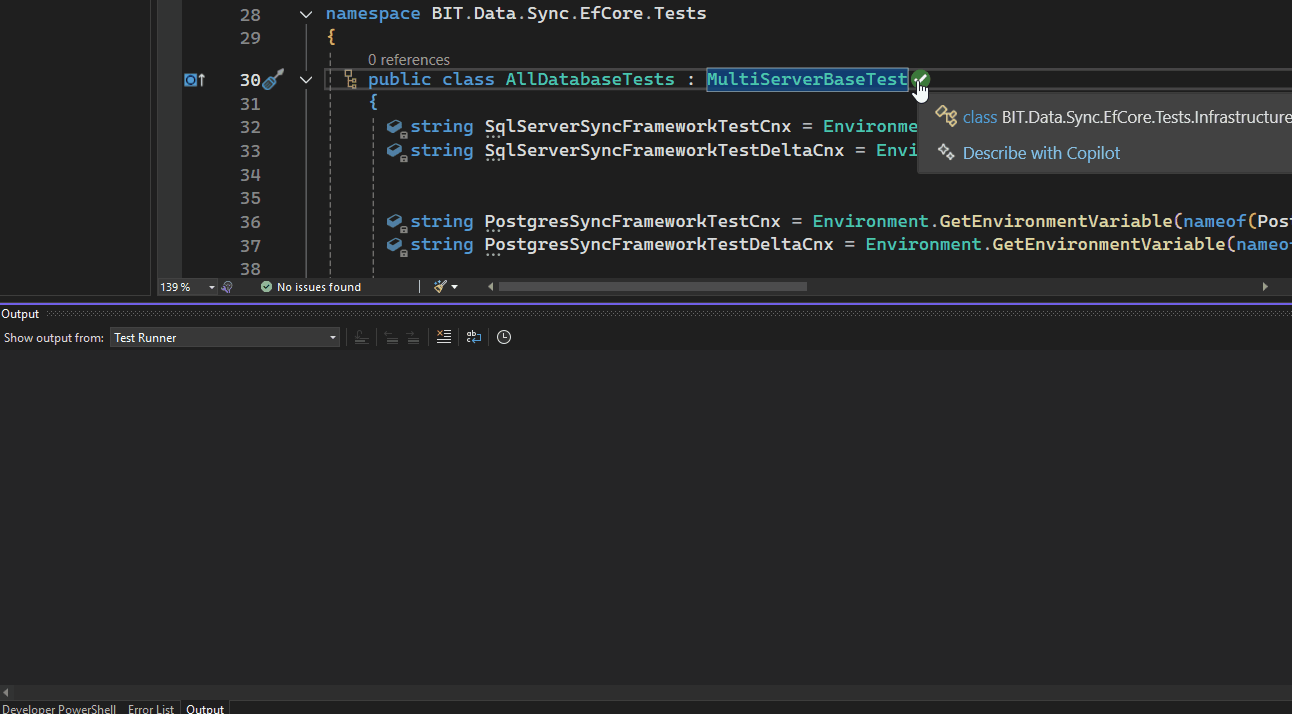
Bridging Traditional Development using XAF and AI: Training Sessions in Cairo
A transformative training session in Cairo demonstrated how modern application frameworks and AI can revolutionize business software development. By integrating DevExpress’s XAF with Microsoft Semantic Kernel, JavaScript developers discovered powerful alternatives to traditional web development approaches, bridging the gap between conventional LOB applications and AI-powered solutions.

Hard to Kill: Why Auto-Increment Primary Keys Can Make Data Sync Die Harder
Auto-increment primary keys, while popular among developers, can create significant challenges in data synchronization scenarios. Each database engine implements these differently – from SQL Server’s IDENTITY to PostgreSQL’s sequences – making cross-database coordination complex. Understanding these implementations is crucial when designing systems that require reliable data synchronization across distributed environments.

SyncFramework for XPO: Updated for .NET 8 & 9 and DevExpress 24.2.3!
SyncFramework for XPO is a specialized implementation of our delta encoding synchronization library, designed specifically for DevExpress XPO users. It enables efficient data synchronization by tracking and transmitting only the changes between data versions,...

SyncFramework Update: Now Supporting .NET 9 and EfCore 9!
SyncFramework Update: Now Supporting .NET 9! SyncFramework is a C# library that simplifies data synchronization using delta encoding technology. Instead of transferring entire datasets, it efficiently synchronizes by tracking and transmitting only the changes between...

Say my name: The Evolution of Shared Libraries
From VB6’s COM components to .NET’s GAC and today’s private dependencies, the evolution of shared libraries reflects the changing landscape of software development. In my early career, we faced “DLL Hell” when shared components in Windows System directories would conflict or break multiple applications. The .NET Framework introduced the Global Assembly Cache with unique assembly identities, allowing multiple versions to coexist. Today, with storage being abundant, we’ve moved towards shipping applications with their own private dependencies. This journey shows how solutions evolve not just technically, but in response to real-world problems and changing resources

ADOMD.NET: Beyond Rows and Columns – The Multidimensional Evolution of ADO.NET
When I first encountered the challenge of migrating hundreds of Visual Basic 6 reports to .NET, I discovered the power of specialized data analytics tools through ADOMD.NET. The journey began with a seemingly simple “Sales Gap” report that identified periods when regular customers stopped purchasing specific items. As our data grew, the report’s execution time increased from one minute to an unbearable 15 minutes. While we couldn’t implement ADOMD.NET due to database constraints, the investigation taught valuable lessons about choosing the right tools for analytical workloads and understanding the limitations of running complex analytics on transactional databases.



